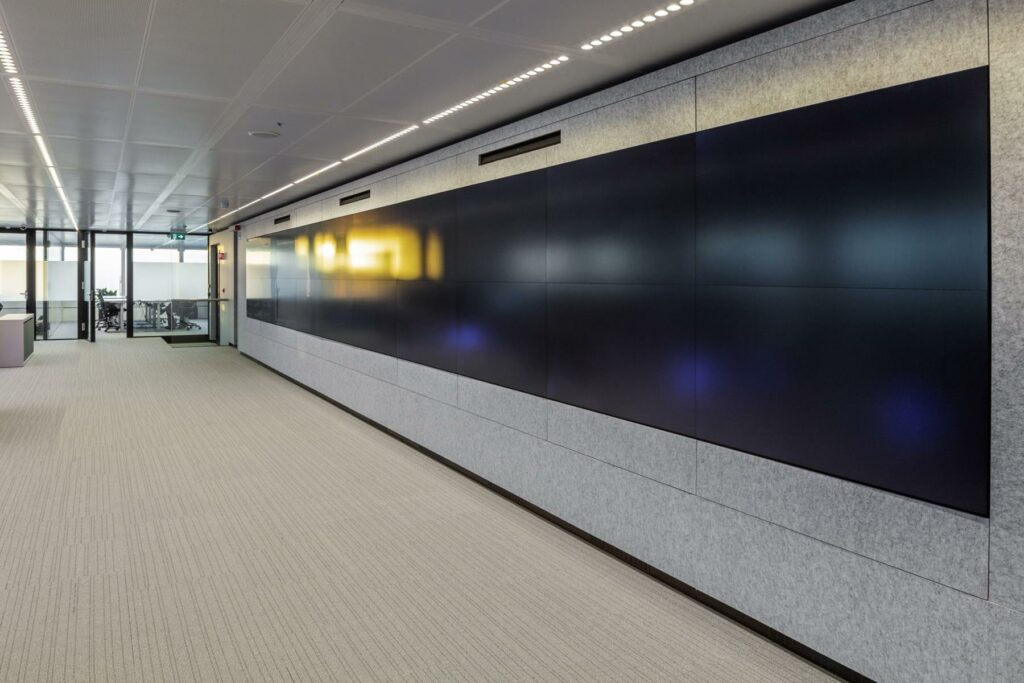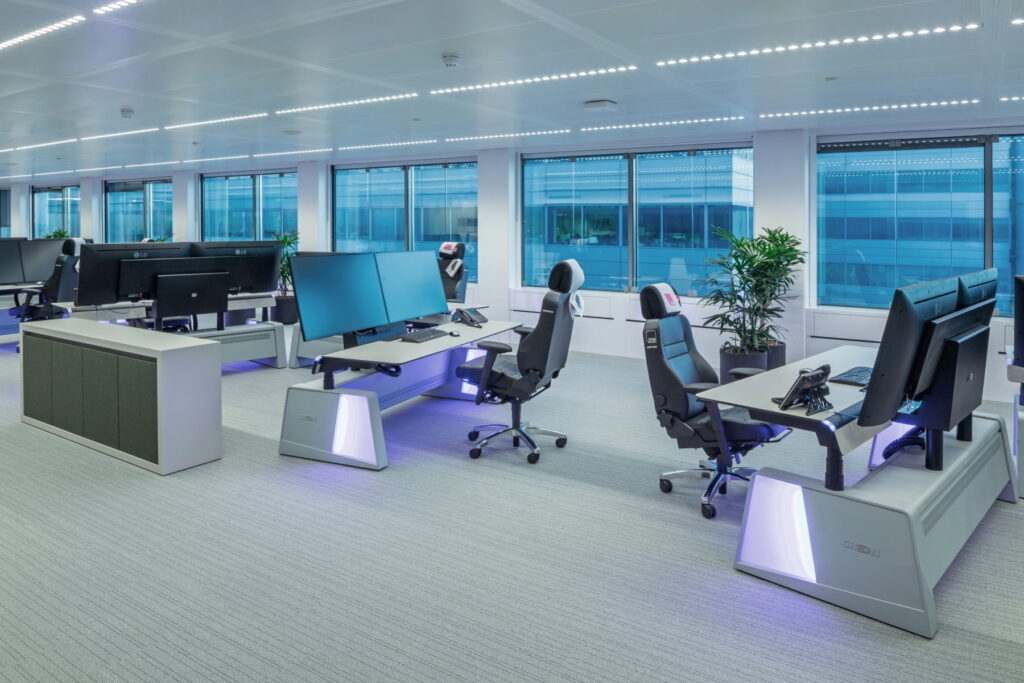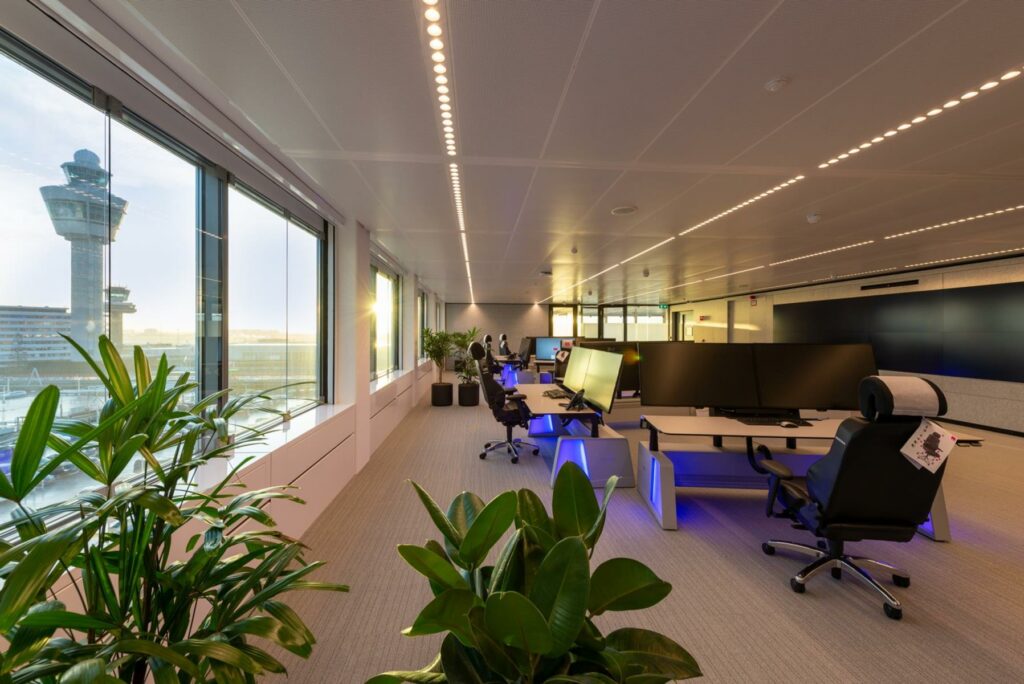Barco OpSpace gives Schiphol operators a shared view on airport operations
Schiphol, NL - 2022
Schiphol, Netherlands, November 2022 – In the new Schiphol Airport Operations Center (APOC), different stakeholders are working together to plan, monitor and control the entire airport logistics. Thanks to the Barco OpSpace workstations, control room operators now have all the information they need to do this, at the moment they need it, 24/7.
Highlights:
- Monitoring various systems and applications in a single pixel space
- Controlling all systems and sources with a single keyboard and mouse
- Smooth collaboration between different APOC stakeholders



With almost 72 million passengers in 2019, Schiphol Airport is the third-busiest airport in Europe in terms of passenger volume and the busiest in Europe in terms of aircraft movements. To be able to manage the complex passenger flows and the increasing number of flights in the future, Schiphol opened a new Airport Operations Center (APOC) in 2020.
New Airport Operations Center (APOC)
The APOC has been established to provide a better experience for both passengers and air carriers at Schiphol Airport. From that central location, the airport’s logistics processes are managed, which are becoming more complex by the day. The APOC provides room for a collaborative space where many of the airport stakeholders can effectively work together and coordinate tasks to implement smooth and predictable passenger and air traffic flows. Thanks to improved collaboration, operators can predict and sometimes prevent possible issues at an early stage.
Together with Bosch Energy and Building Solutions, Barco partner INTER developed ergonomic operator workspaces for the APOC’s state-of-the-art control room. With Barco OpSpace as an essential part of these workspaces, operators can visualize all critical applications from various departments in a single pixel space. This provides them with more direct insight into passenger flows, capacity management, and more.
Smooth collaboration
Each of the logistics disciplines have their own workplace in the control room, including Air Traffic Control the Netherlands, the Royal Netherlands Marechaussee, parking management, and baggage handling. Barco OpSpace makes it possible to include any of these disciplines next to each other on the same screen. Every operator is able to call their own task-specific layout and applications into view. Operators can collect information, share it and interact with their applications easily, all with a single keyboard and mouse.
Schiphol APOC operators now have all the information they need and the moment they need it, 24/7. In addition, operators can share their sources with the operators of other disciplines and present it on one of the three video walls in the control room. Thanks to the availability of real-time and stored data and the collaboration between the various disciplines, operators can predict passenger and flight movement flows with more precision and certainty.
Bosch – Schiphol vested partner
Bosch specialists were involved early in the process during the implementation, which allowed them to identify process optimizations more easily. During the Covid-19 pandemic, Schiphol Airport was able to continue working, under restrictions. However, some automation projects had to be suspended. Many of those projects were aimed at improving the quality of the services at the airport and automating processes to make the airport more intelligent.
“We are proud that Schiphol considers us to be a strategic partner. That long-term relationship makes it possible for us to bring our slogan ‘performance built on partnership’ to life,” says Freek Vermeulen, program manager at Bosch Energy and Building Solutions.
